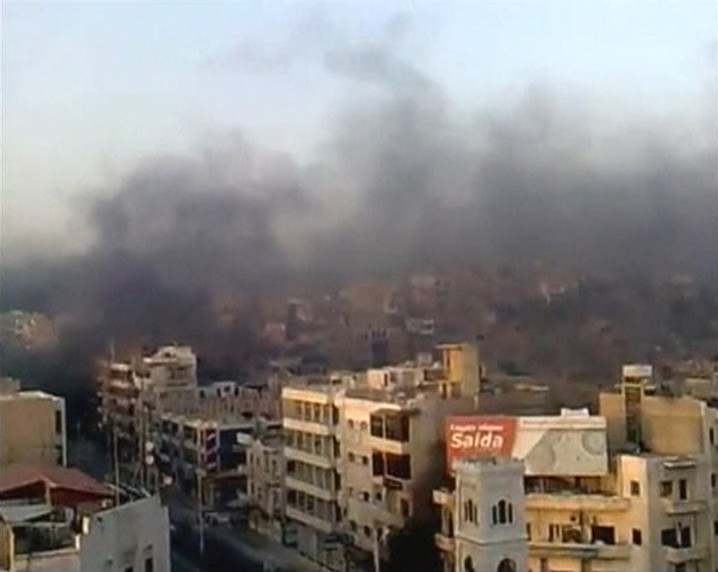Syria Civil War: Arab Fighters Recruited by Both Sides

Foreign troops are heading to Syria to support both the rebels and the embattled Syrian President Bashar al-Assad, prompting fears that the conflict is set to enter a yet more lethal phase.
Despite international calls for Assad to step down and sanctions targeted at the Syrian regime from the EU, the U.S. and the Arab League, the Syrian President has remained defiant.
Meanwhile, Syria is descending into all-out civil war with factions from across the Arab world poised to join the fighting.
The Free Syrian Army and the Libyan Connection
The Free Syrian Army, (FSA) one of the main Syrian opposition group composed of defected Syrian Armed Forces personnel has been increasingly active in recent weeks, targeting the regime in various cities.
While reports suggest that more and more army defectors are joining the group, the FSA is also seeking foreign support, and The Telegraph has reported that the head of the Tripoli Military Council, Abdulhakim Belhadj, met with leaders from the FSA in Istanbul this week.
According to the report, the leaders met to discuss sending Libyan fighters to train troops. The news came as it was also revealed that the new Libyan leaders had offered the FSA weapons and money in support of their struggle against Assad.
Following the 'success' of the Libyan revolution which led to the fall of the Gaddafi regime, footage of Syrian calling for a Libyan support have been posted online.
Leaders from the FSA have denied that hundreds of Libyan fighters had come into Syria but allegations refused to die down and Tuesday it was reported that up to 600 Libyan fighters had entered Syria through the Turkish territory.
The Libyan National Transitional Council has repeatedly condemned the Syrian crackdown and Libya is the first country to recognise another political opposition group, the Syrian National Council (SNC) as the sole legitimate government in Syria.
However in contrast to the Libyan uprising, the FSA and the SNC do not clearly work together and both seem to want international recognition separately.
Assad's "Friends": Iran, Moqtada al-Sadr and Hezbollah
As the number of army defectors continue to grow, the Syrian regime, has been accused of recruiting mercenaries from Iran, Iraq and Lebanon.
Assad's foreign recruits allegedly include members of Iraqi Shiite militias, including men loyal to the Shiite and anti-US cleric Moqtada al-Sadr, who publicly said he supports the Syrian regime. He issued a statement two weeks ago in favour Assad, saying there is "a big difference" between wthe protests in Syria and the "great revolutions in Tunisia, Egypt, Libya, Bahrain and Yemen."
"One of the reasons behind this difference is that Bashar al-Assad is against the American and Israeli presence and his attitudes are clear, not like those who collapsed before him, or will collapse," added the statement
Other recruits allegedly include members of the Iranian Revolutionary Guards.
Iran, a close ally of Syria reiterated its support to the regime Tuesday with the Iranian ambassador to Beirut Ghazanfar Roknabadi saying Teheran would support Damascus because it represents the main pillar of support against the US and Israel.
"Iran pursues its comprehensive support for Palestine and helping the Syrian nation and government to survive the U.S. and Zionist regime plots and deploy and it condemns any foreign interferences in Syria," Roknabadi announced during a meeting on Tuesday.
"What can be seen in Syria is that more than half of the Syrian nation is supporting Bashar al-Assad and opposing with the U.S. and Zionist regime," he noted.
Finally, Hezbollah fighters have also been accused of helping the regime lead its crackdown, allegations that Syrian officials have denied several times. However since the beginning of the uprising the group has voiced its support for the President, also pointing out that overthrowing it would be in the interests of the U.S. and Israel.
Syria and Iran have been known to support the Shiite militant group for years, with Syria often accused of facilitating the smuggling of arms coming from Tehran, so the overthrow of Assad could damage Hezbollah, leaving it weakened both in Lebanon and vis-a-vis Israel.
© Copyright IBTimes 2025. All rights reserved.





















